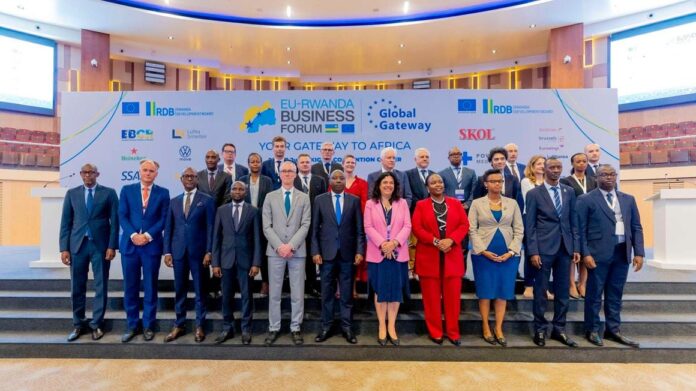The European Union’s battle for influence in East Africa is taking shape with increasing private investment and funding across the region. This follows a €150 billion ($170 billion) pledge for investment pledge made in February last year at the EU-Africa Summit in Brussels, Belgium.
While Europe maintains that it is not in competition with China for influence on the continent, its priority sectors now include building infrastructure, including rapid bus transit systems, which have been dominated by China. It also targets health, education, and climate change adaptation.
The EU’s Global Gateway strategy, which has largely been seen as an answer to China’s Belt and Road Initiative, plans to mobilise up to €300 billion ($331 billion) in public and private investments by 2027, with half of it designated for African countries.
According to analysts at American international affairs think tank, the Atlantic Council, China signed over $303 billion in investments and construction contracts between 2006 and 2020.
“From this perspective, the EU’s €150 billion ($165 billion) over the course of only five years, is certainly significant, especially considering that the investments made by EU member states outside of the Global Gateway initiative should also be added to this amount in totalling the EU’s contributions,” analysts at the Council said.
Last week, more than 100 business leaders from the EU visited Rwanda to explore trade and investment opportunities in the country in the first-ever EU-Rwanda Business Forum.
Rwanda Prime Minister Édouard Ngirente said between 2018 and 2022, EU investments worth over $870 million were registered in Rwanda.
“These investments are transforming the lives of our people through job creation and empowering the private sector, which is a key driver of economic growth,” he said.
During the forum, I&M Bank Rwanda, the European Commission, the European Union Delegation and FMO, the Dutch entrepreneurial development bank, signed a $10 million Nasira Risk Sharing Facility that will help to support the growth and development of micro, small and medium enterprises in Rwanda.
EU investments in Rwanda, estimated at 32 percent of the country’s total foreign direct investment stock, have been expanding, with the most recent investment being the multimillion-dollar vaccine manufacturing plant by German biotechnology company, BioNTech, which is building its first modular mRNA vaccine manufacturing facility expected to promote sustainable vaccine production and end-to-end supply in Africa.
Koen Doens, EU director-general for International Partnerships, said interest in Africa as an investment destination has picked up in recent years, amid increasing appetite from European investors seeking to diversify their investment portfolios to minimise risk linked to natural disasters such as the Covid-19 pandemic and geopolitical conflict like Russia’s war in Ukraine.
“The global supply chain is reliant on a limited number of countries, which makes it very fragile when challenges happen. This is why we are looking at diversification and see Africa presenting huge opportunities to address these challenges,” said Mr Doens.
Nonetheless, Africa’s limited economic integration, which manifests through weak regional value chains, is a challenge for foreign investors seeking opportunities across the region.
And for the region to fully benefit from the evolving global investment landscape, analysts say continental coordination and developing regional value chains are critical to increasing Africa’s attractiveness to investors, especially intra-regional ones.
“The key to attracting investment from Europe is developing regional value chains — the figures are very clear if you look at intra-Africa trade — it is extremely limited, it is too low. (Countries) need to do more trading — the continental free trade area is a marvellous endeavour, but it is not just about tariffs or non-tariff barriers; it is looking at integrated value chains,” Mr Doens said.
He underscored the need to address constraints such as intra-African trade costs, limited competitiveness and a fragmented investment landscape that continue to limit the development of regional value chains.
More in The EastAfrican




